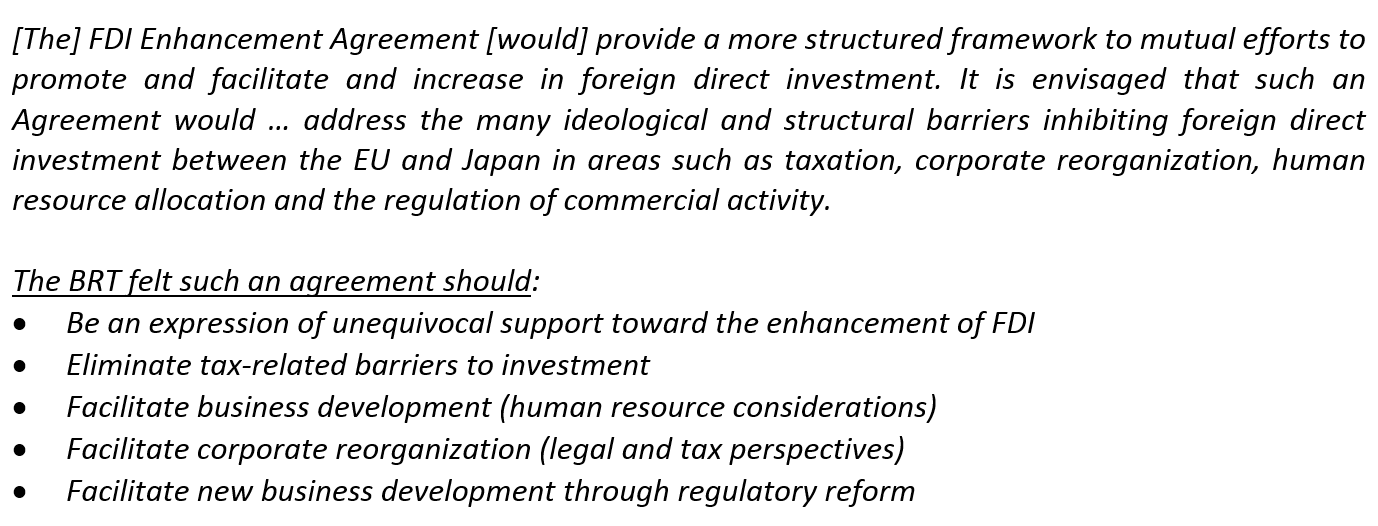
The BRT has been seen as having a 'visionary approach' when it came to the EPA.
As far back as 2000, the BRT called the creation of common rules and a form of regulatory cooperation, predicted an important future role for digital technologies, recognised the importance of government and industry working in partnership, but felt trade negotiations should be multilateral:

[ Regulatory cooperation is covered by Chapter 18 in the Agreement ]
In 2003, whilst maintaining its support for the multilateral trade negotiations at the WTO, the BRT advocated an FDI Enhancement Agreement between Europe and Japan:

[ Investment cooperation is covered by Chapter 8 of the Agreement ]
By 2006 the BRT felt that time is running out for the WTO Doha Development Agenda (negotiations having started in 2001) and noted the increasing trend towards regional free trade agreements.
In 2007, the BRT maintained its support for the WTO but called on the EU and Japanese Authorities to give due consideration to explore the feasibility of an enriched economic agreement:

Separate EU and Japan "EIA Taskforces" were established in late 2007 and met separately and together to assess what a possible economic integration agreement (or "EIA") should cover. They submitted a joint report to the 2008 BRT annual meeting and taking account of EU-Japan trade relations, issues of interest to both sides and trade negotiation aspects, they identified potential 'next steps'. A Japanese version of the report was also published on the website of the Japan External Trade Organization (JETRO) which acted as the Secretariat to the Japanese EIA Taskforce.
Thus, from 2007 to 2017, the BRT maintained its call for a deep, ambitious, comprehensive and equitable trade agreement between the EU and Japan. At times it congratulated the negotiators for the progress they were making, at other times it cautioned that extra effort was required if the goal was to be realised.
For example, in response to the announcement of 06 July 2017 that an 'agreement in principle' on the main elements of the EPA had been reached, at the BRT's subsequent 19th annual meeting on 11 July 2017, the BRT welcomed this development "with considerable delight", but urged the Authorities
"to bring the negotiations to a successful conclusion and to resolve the remaining questions for the benefit of both parties".
On numerous occasions the BRT made clear its expectations ...
(e.g. for a: "swift, comprehensive, ambitious and mutually-beneficial conclusion" to the negotiations)
... and also sought to provide ideas for how to overcome obstacles to a successful outcome
(e.g. in 2015 and 2016, the BRT urged:
"for the sake of our economies, political leaders at the highest level to intervene to resolve the deadlocks and bring the negotiations to a timely and ambitious conclusion".)
The BRT welcomed the 01/02/2018 entry into force of the EPA as "A New Era for the EU and Japan" and since then has continued to monitor its application, scope and usage rates and to discuss EPA-issues with the EU and Japanese Authorities.
For information about the EPA please see the main EPA webpage on this website.
The EU-Japan Centre currently produces 5 newsletters :









